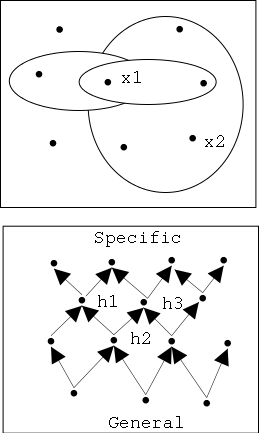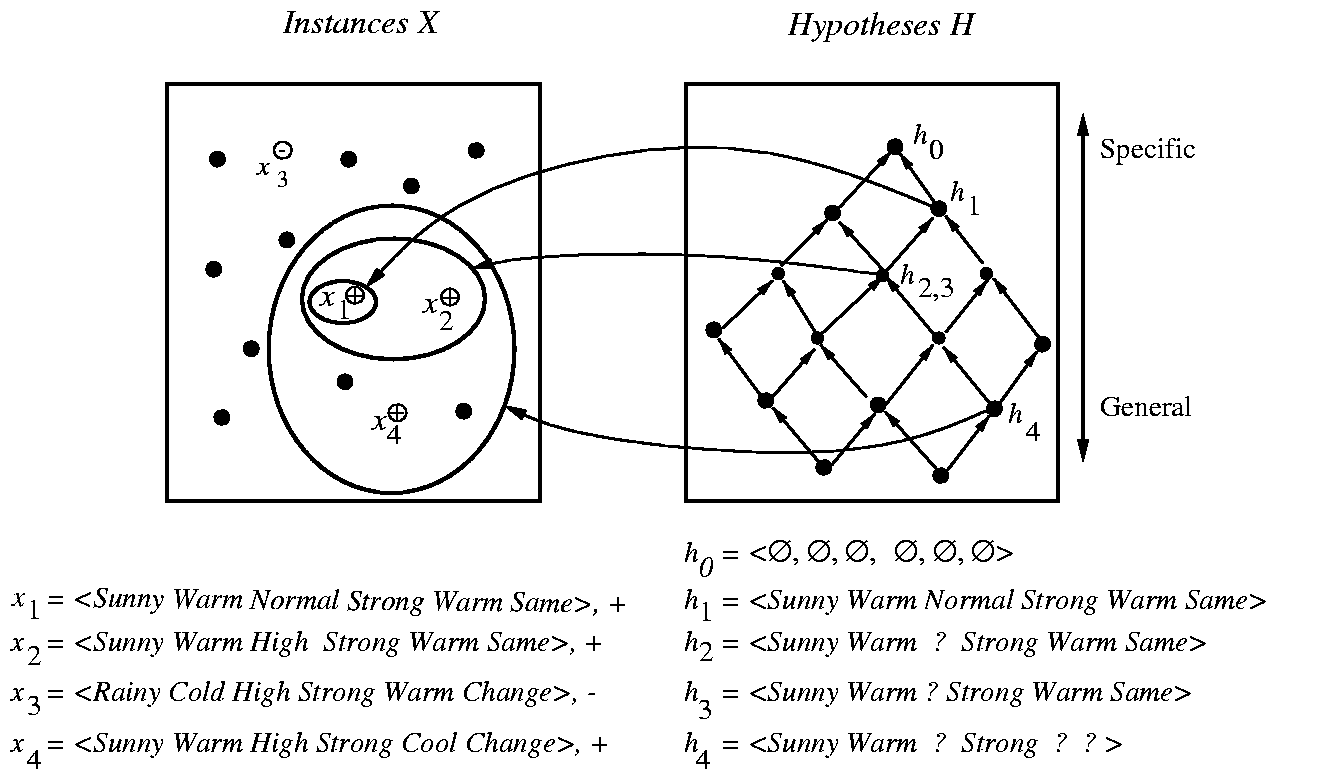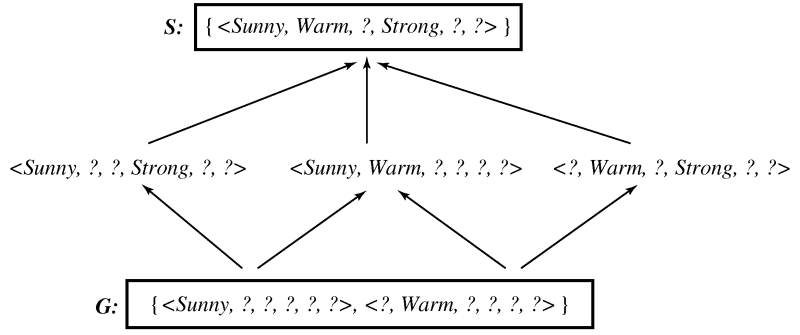| $S_0: \{\emptyset, \emptyset, \emptyset, \emptyset, \emptyset, \emptyset\}$ |
| $S_1: \{ \langle Sunny, Warm, Normal, Strong, Warm, Same \rangle \}$ |
| $S_2$, $S_3$ $: \{ \langle Sunny, Warm, ?, Strong, Warm, Same \rangle \}$ |
| $S_4: \{ \langle Sunny, Warm, ?, Strong, ?, ? \rangle \}$ |
| $G_4: \{\langle Sunny, ?, ?, ?, ?, ? \rangle, \langle ?, Warm, ?, ?, ?, ? \rangle \}$ |
| $G_3: \{\langle Sunny, ?, ?, ?, ?, ? \rangle, \langle ?, Warm, ?, ?, ?, ? \rangle, \langle ?, ?, ?, ?, ?, Same \rangle\}$ |
| $G_0$, $G_1$, $G_2$$: \{\langle ?, ?, ?, ?, ?, ? \rangle \}$ |


